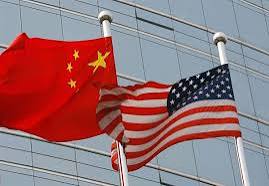The global semiconductor industry finds itself at the center of geopolitical tensions as new data reveals the complex web of chip flows to Russia, despite international sanctions. While recent figures from the U.S. Commerce Department suggest a slowdown in illicit semiconductor shipments through China and Hong Kong, the situation remains far from resolved.

According to previously undisclosed data, transshipments of Common High Priority Items (CHPL) – including advanced microelectronics – through Hong Kong to Russia decreased by 28% between January and May 2024. Mainland China saw a similar trend with a 19% reduction. These figures, while encouraging, mask a more complex reality of ongoing sanctions evasion.
The semiconductor industry, crucial for both civilian and military technologies, has become a battleground in international relations. With chips powering everything from smartphones to advanced weapon systems, controlling their flow has become a key strategy in limiting Russia’s military capabilities following its invasion of Ukraine.
Hong Kong’s position as a global financial and logistics hub has made it a focal point for sanctions evasion. The city’s business-friendly regulations, which allow for easy company registration and minimal oversight, have inadvertently created an environment conducive to shell companies engaged in restricted trade.
A recent report by the Committee for Freedom in Hong Kong Foundation (CFHK) highlights the extent of this issue. Using customs data from C4ADS, the report identified over 200 Hong Kong-registered firms that shipped nearly $2 billion worth of goods to Russian buyers in just five months of 2023. More alarmingly, $750 million of these shipments consisted of CHPL items, including high-end chips from major manufacturers like Nvidia and Vectrawave.
The involvement of well-known tech companies raises questions about the effectiveness of current export control measures. While these companies assert strict compliance with U.S. laws and sanctions, the appearance of their products in restricted markets suggests a need for more robust supply chain controls and due diligence processes.
The U.S. government’s efforts to curb this illicit trade have included aggressive enforcement actions and engagement with companies whose products are found in restricted markets. However, the persistence of the problem underscores the challenges in policing a global, highly interconnected supply chain.
Hong Kong’s stance on unilateral sanctions further complicates the situation. The city’s government has stated it lacks the legal authority to enforce sanctions imposed by individual countries, adhering only to UN Security Council sanctions. This policy gap creates opportunities for sanctions evasion that are difficult to close without international cooperation.
The semiconductor industry’s global nature means that effective control requires coordinated international action. While the U.S. and its allies have made strides in aligning their export control policies, significant challenges remain in implementation and enforcement, particularly in jurisdictions like Hong Kong that serve as key transit points.
As the global community continues to grapple with these issues, the semiconductor industry faces increasing pressure to enhance its own compliance measures. The stakes are high, with implications not just for international security but also for the future of global trade in high-tech industries.
The ongoing situation serves as a reminder of the complex interplay between technology, trade, and geopolitics in the 21st century. As nations and companies navigate these choppy waters, finding a balance between open trade and security concerns will remain a critical challenge for policymakers and industry leaders alike.



